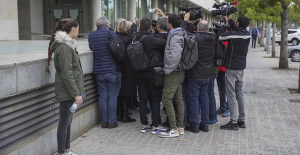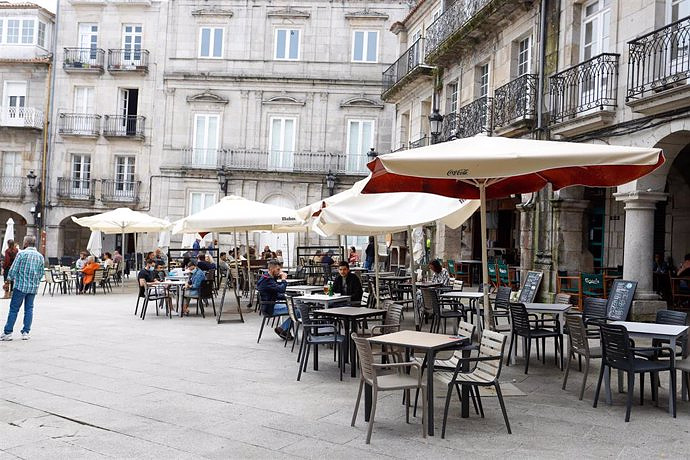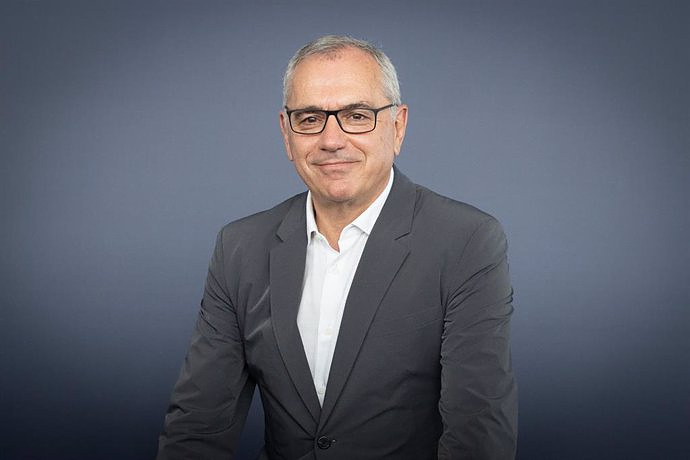The Prosecutor's Office asks to increase the sentences to 10 years and alleges that the "law of only yes is yes" allows it
MADRID, 28 Nov. (EUROPA PRESS) -
The Supreme Court (TS) will deliberate this Tuesday on the appeals filed against the sentence handed down by the Superior Court of Justice of Castilla y León (TSJCyL) in the so-called 'Arandina case', which involved acquitting one of the three former club players convicted of sexual assault on a minor and reduce the sentence of the other two from 38 years in prison to 4 and 3.
The Criminal Chamber of the TS will study the challenges made by the Prosecutor's Office, the private and popular accusations and the defenses of the two footballers who continue to be convicted, as part of the normal course of appeals, even if it occurs in the midst of the controversy raised by the entry into force of the so-called 'law of only yes is yes', according to the legal sources consulted.
In fact, the same sources emphasize that the legal debate will focus fundamentally on the appreciation of a mitigating factor that assesses the closeness of age and maturity between the aggressors and the victim. However, this same Tuesday the Second Chamber will analyze other appeals against cases of sexual abuse and assault that occurred in the Canary Islands, Andalusia and Castilla La Mancha. Last week, they specify, he already examined others, including one referring to the Balearic Islands.
The first sentence for the 'Arandina case' was handed down in December 2019 by the Provincial Court of Burgos, sentencing the three soccer players to 38 years in prison each as perpetrators and necessary collaborators of a crime of sexual assault committed two years earlier against a minor. , also appreciating the existence of environmental intimidation.
According to the proven facts, the victim, then 15 years old, went to the apartment that the three young people shared in the Burgos town of Aranda de Duero, where the sexual assault took place without her being able to react, due to the different physical complexion of the two. condemned and the minor, since the three acted on her with the light off and by surprise.
This first ruling was appealed and the TSJCyL decided in March 2020 to classify the facts as sexual abuse, ruling out intimidation due to what it considered contradictions in the victim's account, and appreciating an extenuating circumstance due to the closeness of age and maturity between the convicted and victim, which meant lowering the sentences of 'Lucho' and 'Viti' to 4 and 3 years in prison, respectively.
As for the third convicted person, the TSJCyL acquitted him, ruling out his criminal responsibility for what happened in the living room of the house. The Court of Burgos had only acquitted him of what happened in his room.
As reflected in this second sentence, the victim recounted that, in the living room of the house, she had sexual contact with the three players due to the blockade due to fear and that, later, she had a complete sexual relationship with one of them in his room.
The defenses of 'Lucho' and 'Viti' also seek acquittal in their respective resources, while the private prosecution brought by the victim and the public prosecution of the Clara Campoamor Association ask the Supreme Court to sentence them again to 38 years in prison.
The Prosecutor's Office, for its part, proposed at the time to raise the sentence of these two players to 10 years in prison, as perpetrators of a crime of sexual abuse of a minor under 16 years of age but eliminating the extenuating circumstance that included the TSJCyL.
Prosecutor Paloma Abad has argued in a recent letter that with the 'law of only yes is yes' it is possible to maintain her initial request for 10 years in prison because the new criminal range for this behavior is between 6 and 12 years in prison.
However, in the event that the TS does not consider this option, the prosecutor demands that the current sentence for sexual abuse be maintained with said mitigation --to 3 and 4 years in prison--, arguing that it is not necessary to lower it because it fits likewise, since the new fork for this assumption goes from 2 to 4 and a half years.

 Exploring Cardano: Inner Workings and Advantages of this Cryptocurrency
Exploring Cardano: Inner Workings and Advantages of this Cryptocurrency Seville.- Economy.- Innova.- STSA inaugurates its new painting and sealing hangar in San Pablo, for 18 million
Seville.- Economy.- Innova.- STSA inaugurates its new painting and sealing hangar in San Pablo, for 18 million Innova.- More than 300 volunteers join the Andalucía Compromiso Digital network in one month to facilitate access to ICT
Innova.- More than 300 volunteers join the Andalucía Compromiso Digital network in one month to facilitate access to ICT Innova.-AMP.- Ayesa acquires 51% of Sadiel, which will create new technological engineering products and expand markets
Innova.-AMP.- Ayesa acquires 51% of Sadiel, which will create new technological engineering products and expand markets Duro Felguera announces the resignation of three directors after having fulfilled the assigned functions
Duro Felguera announces the resignation of three directors after having fulfilled the assigned functions STATEMENT: BLUETTI launches the Solar program in Germany
STATEMENT: BLUETTI launches the Solar program in Germany Sánchez avoids clarifying whether Ribera will be a candidate on 9J but places her at the level of Calviño and Borrell, with European positions
Sánchez avoids clarifying whether Ribera will be a candidate on 9J but places her at the level of Calviño and Borrell, with European positions Seven CCAA, Ceuta and Melilla did not execute the Equality budget against sexual exploitation of minors under guardianship
Seven CCAA, Ceuta and Melilla did not execute the Equality budget against sexual exploitation of minors under guardianship How Blockchain in being used to shape the future
How Blockchain in being used to shape the future Not just BTC and ETH: Here Are Some More Interesting Coins Worth Focusing on
Not just BTC and ETH: Here Are Some More Interesting Coins Worth Focusing on LIFE SPOT manages to develop new green treatments that eliminate groundwater contamination
LIFE SPOT manages to develop new green treatments that eliminate groundwater contamination València Game City is born to promote the video game industry and position this city as a leader in the sector
València Game City is born to promote the video game industry and position this city as a leader in the sector A team of UPV and iPRONICS manufactures the first programmable and multifunctional photonic chip on the market
A team of UPV and iPRONICS manufactures the first programmable and multifunctional photonic chip on the market 'Science and Reeds' returns with talks about "the mystery of the lost socks" or the vinegar fly
'Science and Reeds' returns with talks about "the mystery of the lost socks" or the vinegar fly A million people demonstrate in France against Macron's pension reform
A million people demonstrate in France against Macron's pension reform Russia launches several missiles against "critical infrastructure" in the city of Zaporizhia
Russia launches several missiles against "critical infrastructure" in the city of Zaporizhia A "procession" remembers the dead of the Calabria shipwreck as bodies continue to wash up on the shore
A "procession" remembers the dead of the Calabria shipwreck as bodies continue to wash up on the shore Prison sentences handed down for three prominent Hong Kong pro-democracy activists
Prison sentences handed down for three prominent Hong Kong pro-democracy activists ETH continues to leave trading platforms, Ethereum balance on exchanges lowest in 3 years
ETH continues to leave trading platforms, Ethereum balance on exchanges lowest in 3 years Investors invest $450 million in Consensys, Ethereum incubator now valued at $7 billion
Investors invest $450 million in Consensys, Ethereum incubator now valued at $7 billion Alchemy Integrates Ethereum L2 Product Starknet to Enhance Web3 Scalability at a Price 100x Lower Than L1 Fees
Alchemy Integrates Ethereum L2 Product Starknet to Enhance Web3 Scalability at a Price 100x Lower Than L1 Fees Mining Report: Bitcoin's Electricity Consumption Declines by 25% in Q1 2022
Mining Report: Bitcoin's Electricity Consumption Declines by 25% in Q1 2022 Oil-to-Bitcoin Mining Firm Crusoe Energy Systems Raised $505 Million
Oil-to-Bitcoin Mining Firm Crusoe Energy Systems Raised $505 Million Microbt reveals the latest Bitcoin mining rigs -- Machines produce up to 126 TH/s with custom 5nm chip design
Microbt reveals the latest Bitcoin mining rigs -- Machines produce up to 126 TH/s with custom 5nm chip design Bitcoin's Mining Difficulty Hits a Lifetime High, With More Than 90% of BTC Supply Issued
Bitcoin's Mining Difficulty Hits a Lifetime High, With More Than 90% of BTC Supply Issued The Biggest Movers are Near, EOS, and RUNE during Friday's Selloff
The Biggest Movers are Near, EOS, and RUNE during Friday's Selloff Global Markets Spooked by a Hawkish Fed and Covid, Stocks and Crypto Gain After Musk Buys Twitter
Global Markets Spooked by a Hawkish Fed and Covid, Stocks and Crypto Gain After Musk Buys Twitter Bitso to offset carbon emissions from the Trading Platform's ERC20, ETH, and BTC Transactions
Bitso to offset carbon emissions from the Trading Platform's ERC20, ETH, and BTC Transactions Draftkings Announces 2022 College Hoops NFT Selection for March Madness
Draftkings Announces 2022 College Hoops NFT Selection for March Madness






















